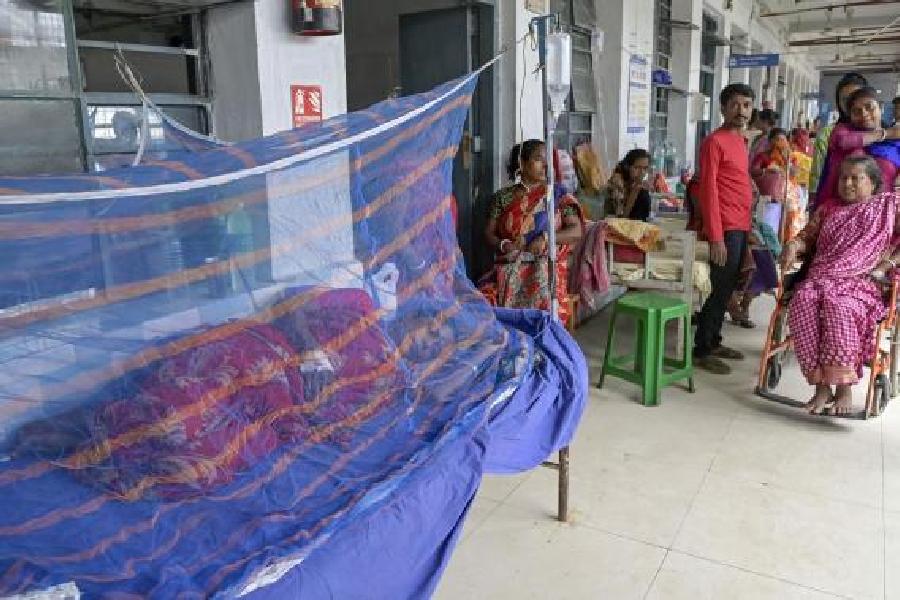The rise in the number of dengue cases in rural Bengal has led a section of health department officials to blame the alleged lax cleanliness drive in suspected mosquito breeding pockets as panchayat functionaries across the state were busy with the July 8 polls. "At least a month ago we asked all gram panchayat officials to form special teams and speed up the cleanliness drive in suspected breeding pockets of Aedes aegypti mosquitoes. Surprisingly, no proper drive was taken by the heads of rural bodies as they were busy campaigning for the rural polls. That is why we are noticing a rising trend in dengue cases in rural pockets," said a senior health department official. According to sources in the state health department, around 2.76 lakh dengue tests have been carried out till earlier this week and 3,600 positive cases reported. Among the dengue cases, around 70 per cent are from rural areas. The state administration does not want a repeat of last year's situation when Opposition parties attacked the government for its failure to address the health crisis as the dengue count last year crossed 42,000 in Bengal, the highest since 2017. However, the director of health services, Siddhartha Niyogi, admitted that compared to last year the number of dengue cases at this time of 2023 was higher. "Yes, the number of dengue cases this time is higher than the corresponding last year. To curb the rising trend we have taken several measures to destroy breeding pockets of mosquitoes with the help of both rural and urban bodies," said Niyogi. A state health official said that last year the spike started in end-August but this time it advanced to July-end. Though the state health department has not revealed the dengue toll this year, multiple sources in the health department said that already at least a dozen people died of it. A resident of Santipur in Nadia said that during the last two months, panchayat officials were busy with the poll process and cleanliness was put on the back burner. "The administration must decide its priority — health and hygiene or polls? We feel the administration should give priority to health. Unfortunately, they don't share our view," the Santipur resident said. A source said the state health department held a meeting in June and communicated with the block development officers to take up all necessary actions to prevent a major dengue outbreak. However, as rural boards are yet to be formed, most gram panchayats are almost defunct. "Many block development officers told us that it was not possible for them to focus on dengue-related activities as they were still busy with the post-poll process," said a health official in South 24-Parganas. Among many dengue-prone districts, the government has focused on Nadia, North 24-Parganas, Howrah, Hooghly, and parts of Birbhum and Murshidabad. Nadia is taking the lead in the number of cases this time, followed by North 24-Parganas. An official said that during the dengue review meeting held earlier this week, chief secretary H.K. Dwivedi asked the rural development department for a special cleanliness drive in all panchayat areas within August first week. "The main problem is with rural areas adjacent to urban pockets, especially in four districts near Calcutta — Howrah, Hooghly, North, and South 24-Parganas. A primary report suggests the nature of garbage in the areas is like urban pockets because of unplanned urbanisation and lack of cleanliness drives," said a senior official. State panchayat and rural development minister Pradip Mazumdar, however, said his department had sent an advisory to all rural bodies to take "necessary actions and combat the dengue outbreak". He refuted charges of lapses in cleanliness drives because of rural polls.











